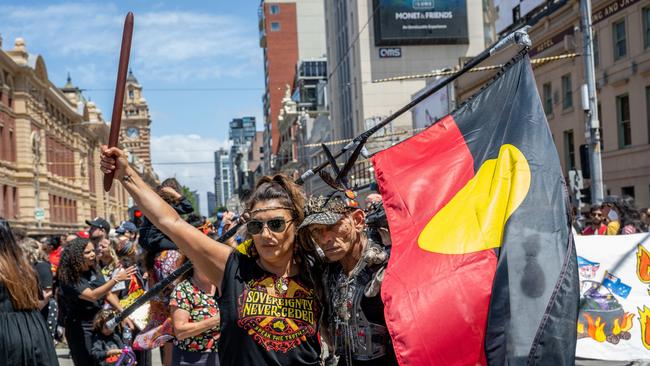
“I just thought that everyone would be voting for the voice,” said Wake, a former ABC reporter who has taught journalism at RMIT and Deakin University. “I can’t even understand why there is a debate, and yet now there is so many different sides to that and it is starting to get nasty in some quarters.”
She has a point. As a Newspoll survey revealed this month, around 53 per cent of Australians are in favour of the voice. Pretty much everyone, really. Well, not quite everyone, but nearly everyone. Applying the 38 per cent figure of those in the ‘no’ camp to the general population, it would mean just under 9.9 million Australians are opposed. An insignificant number you would surely agree. The chances of coming across even one of them in the lead-up to this referendum are astronomical.
Or should I say – especially if Wake is any indication – the chances of meeting a ‘no’ voter in the RMIT staff lounge are next to none. As for her serene dismissal of the need for debate regarding this proposed constitutional amendment, she makes another excellent point. It is not as if journalists by nature should be sceptical about the motives of governments, particularly one that has for the last nine months stonewalled, dissembled, and deflected when asked about this proposed constitutional body’s composition, function, and purview.
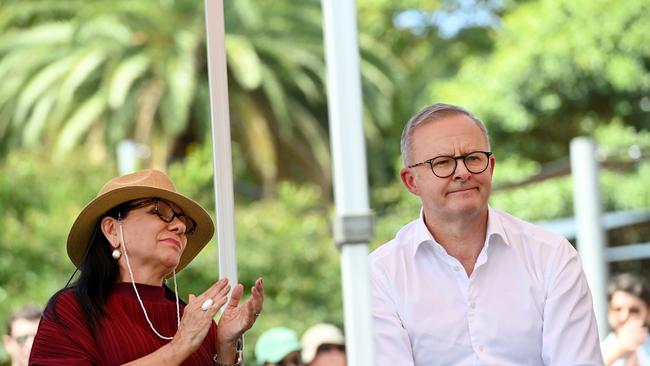
Ironically, less than half an hour before Wake’s remarks, Karvelas had passionately warned budding journalists about the dangers of media insularity. “We must be the town square and challenge any retreat into little bubbles,” she said. “When I hear people say ‘I’m just going to stay in my bubble’ – I just want to stab myself with a fork … We need to talk and learn from each other”.
But far from reaching for a fork, she did not lambast Wake for her insularity, instead saying “I don’t think we should come to it assuming that everyone thinks it’s a good idea”. That gentle demur stands in contrast to Karvelas’s effusive support for the Uluru Statement on social media.
Instead of arguing the merits of the referendum proposal, the case for the ‘yes’ campaign is increasingly defined by its outright contempt for, and disparagement of, those outside their camp. Their rancour is directed not only at those arguing the case for the negative, but also the undecided. Witness for example UNSW law professor, Uluru Dialogue leader, and Indigenous woman Megan Davis who last month attacked universities for not collectively backing the voice.
“Silence is political,” she said, declaring the universities’ decision not to take a joint stand amounted to “false objectivity”. No doubt anthropology professor, fellow Indigenous woman, and Referendum Working Group member Marcia Langton would agree. Last week she attacked conservatives who warned that extending the voice mandate to executive decision-making would result in government hamstrung by litigious activism. “Their argument reeks of subconscious racism,” decreed Langton.
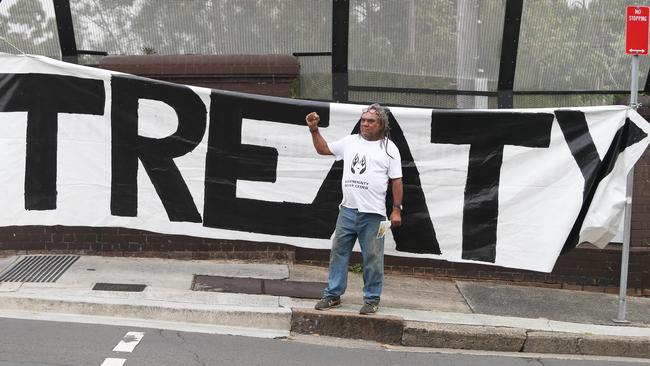
Emerging from his Byron Bay enclave this week, former 7.30 host Kerry O’Brien declared the case for constitutional change was “undeniable”. He does not take kindly to those who argue otherwise. “I am appalled by the efforts of some to dishonestly muddy the waters to defeat the referendum without concern for the damage it will do,” he protested.
So appalled is O’Brien that he has co-authored ‘The Voice to Parliament Handbook’ with Indigenous man, Maritime Union of Australia official and Referendum Working Group member Thomas Mayo. “They (Australians) need these answers because the greatest enemy of progress is confusion and misinformation,” said Mayo this week. If that is the case, surely he and O’Brien will demand the Albanese government fund the ‘yes’ and ‘no’ campaigns to ensure Australians are fully informed?
In January, Mayo featured in a 7.30 report concerning alleged anti-voice disinformation His message was one of reassurance about the purpose of the voice. “It merely gives us a greater chance to advise the government so that they get things right,” he said. But earlier that same day he told Ali Moore of ABC Melbourne: “It’s a strong message to all future parliaments that what the voice says should be respected and it should be acted upon … So when they ignore the advice and when they disrespect this voice there will be a political cost”. How is that for a mere “advisory body”?
And there is nothing like elitist arrogance to drive the undecided into voting against the proposal, as prominent constitutional law barrister Bret Walker SC demonstrated last week. “The notion that the voice is to be abominated because it may have moral force is, I’m sorry, I believe it to be racist because nobody has ever professed that that’s a reason there should not be lobbyists,” he said last week at a seminar hosted by Clayton Utz.
I’m sorry, Mr Walker – actually I’m not – but that is bewigged balderdash. As I wrote last year, the voice, if realised, will be a boon for Indigenous activists and their Labor/Greens supporters. They, in conjunction with a sympathetic commentariat, will noisily hold that legislation which does not bear the voice’s imprimatur is morally illegitimate. Primarily, it will be used to frustrate and undermine a conservative government. Its influence would be manifestly disproportionate. To argue that notion is racist is a lazy slur.
Incidentally, did you know the salary of an RMIT associate professor is around $160,000? I have a plan to jag one of these positions at its journalism school. If shortlisted for interview, I will answer the panel’s questions politely and professionally until the subject of the referendum comes up. Whereupon I will, like the Knights of Ni in Monty Python and the Holy Grail, cover my ears and writhe on the floor while screaming and wailing.
After being revived, I would explain to the panel that I cannot bear hearing the ‘r’ word. “How is it that constitutionally affirming the existence of First Nations people, let alone allowing them to have a say in policies that affect them, is held hostage to the whims of a settler population,” I will tearfully lament. What is the bet they would offer me the job on the spot?


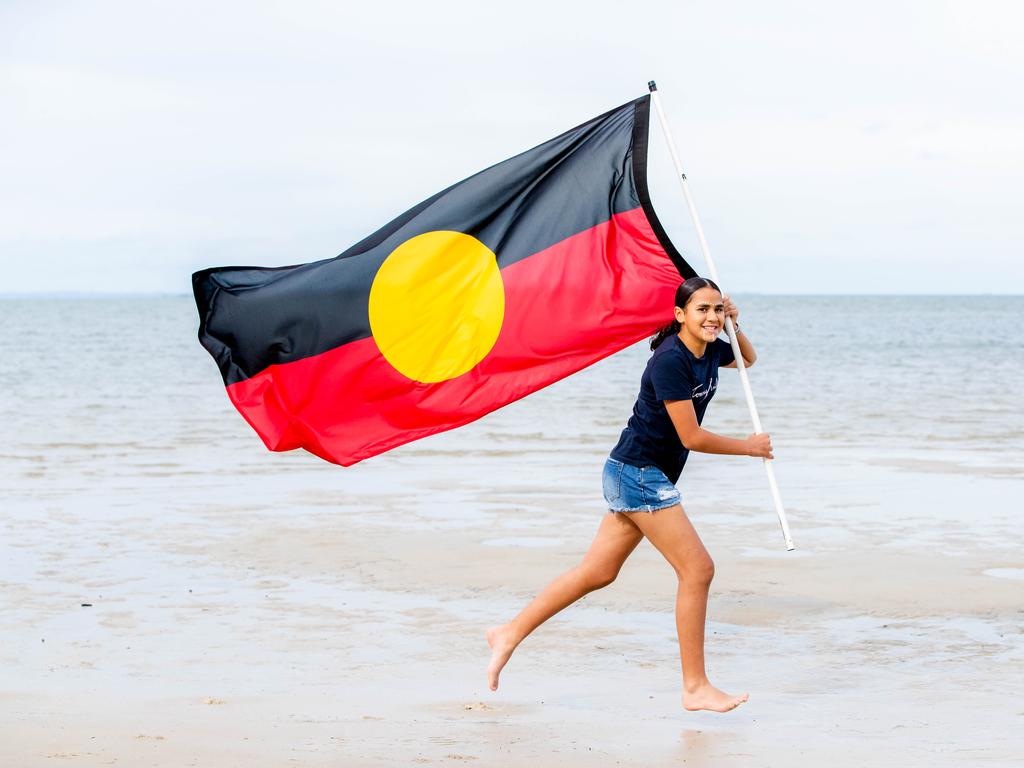

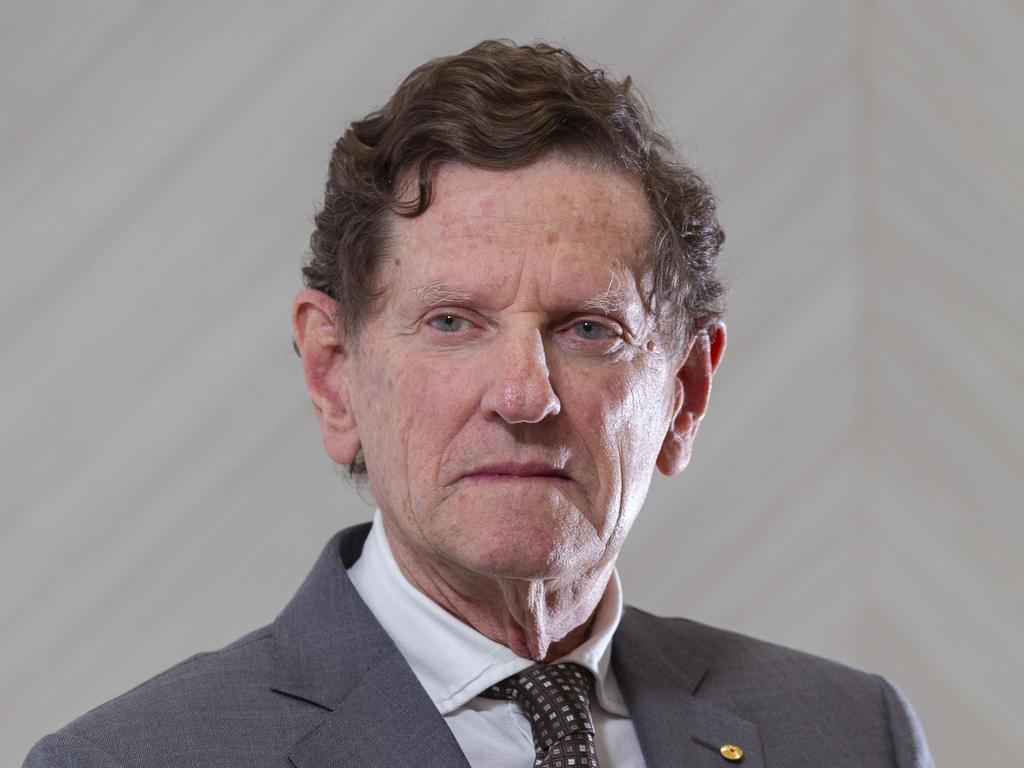
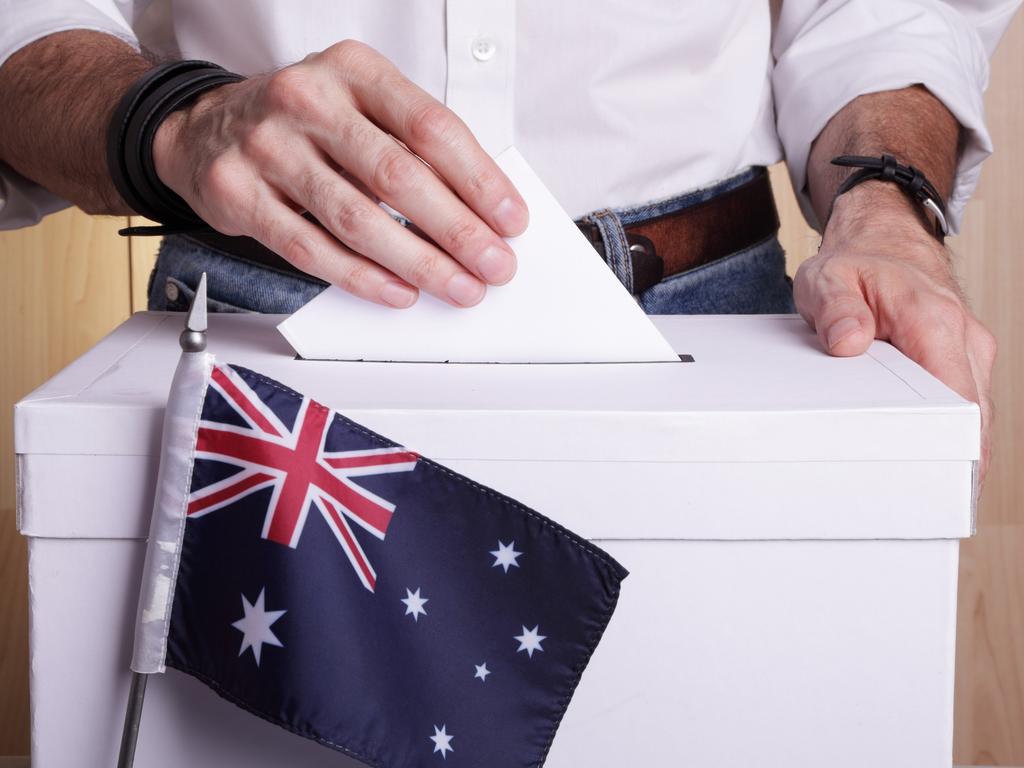


Were you too taken aback to learn not everyone is in favour of amending the constitution to provide for a so-called Indigenous voice to parliament and government? It certainly was a shock to associate professor Alexandra Wake of RMIT’s School of Media and Communication, who last week officiated at ABC RN presenter Patricia Karvelas’s inaugural address following her appointment as honorary professor.